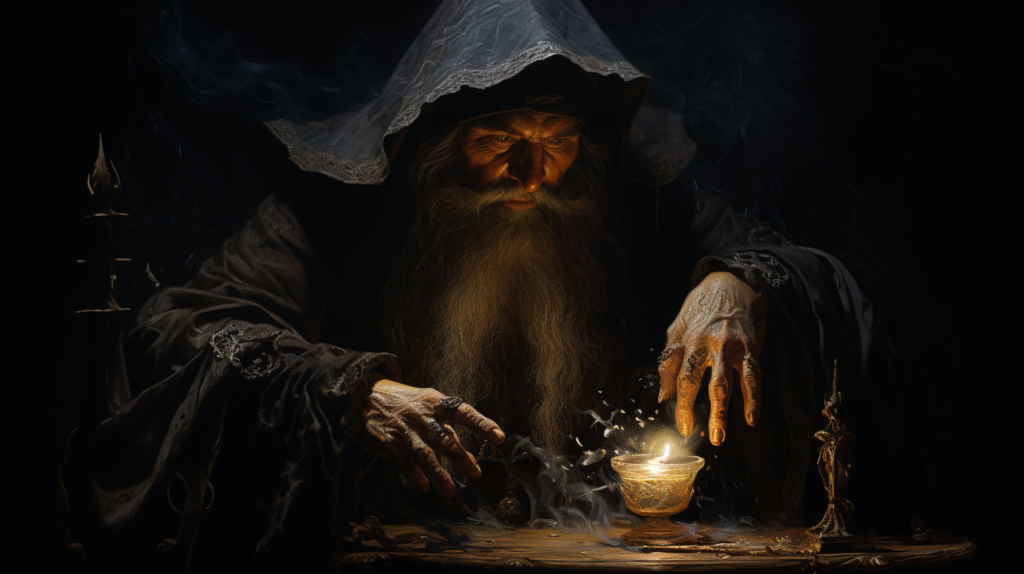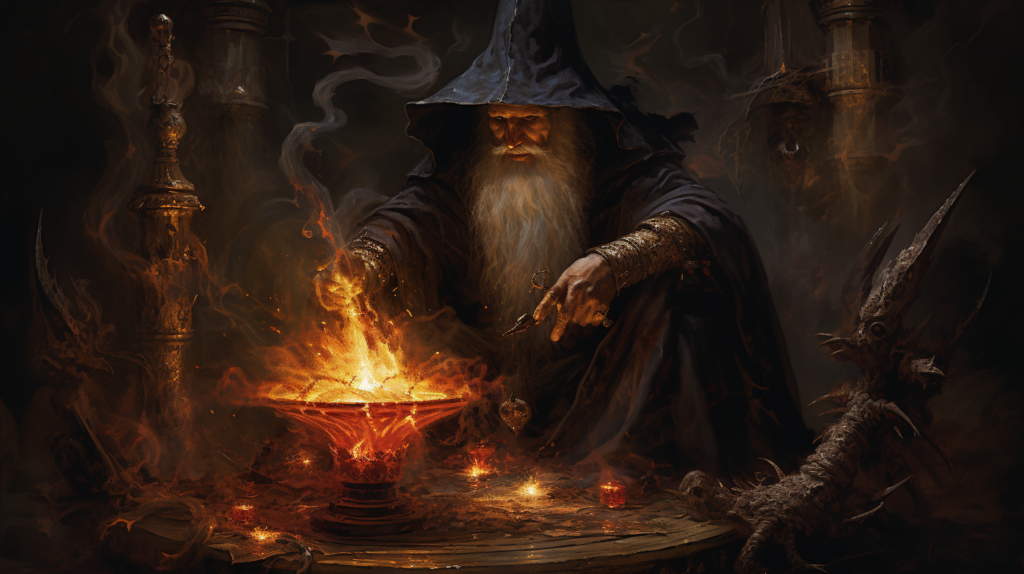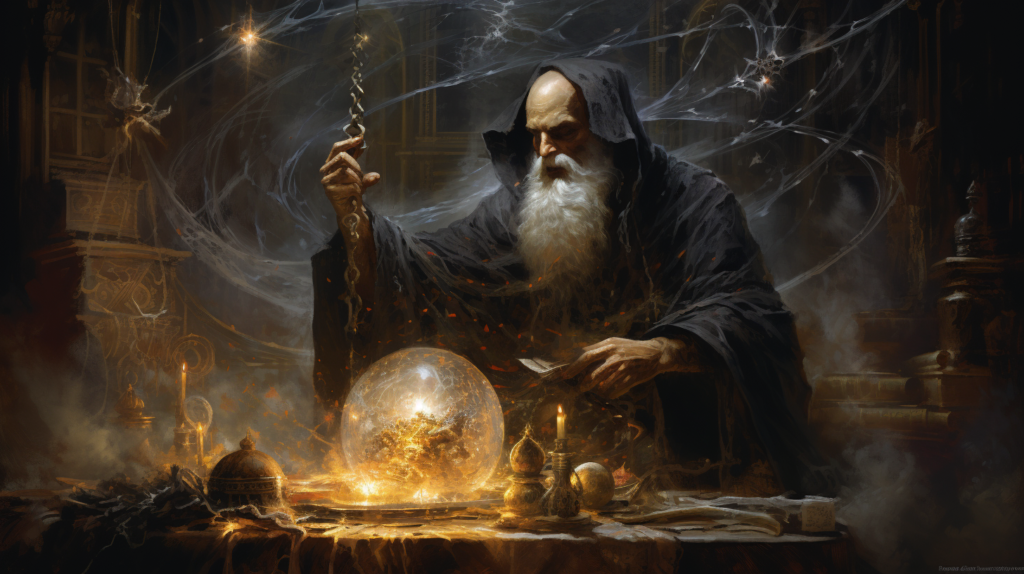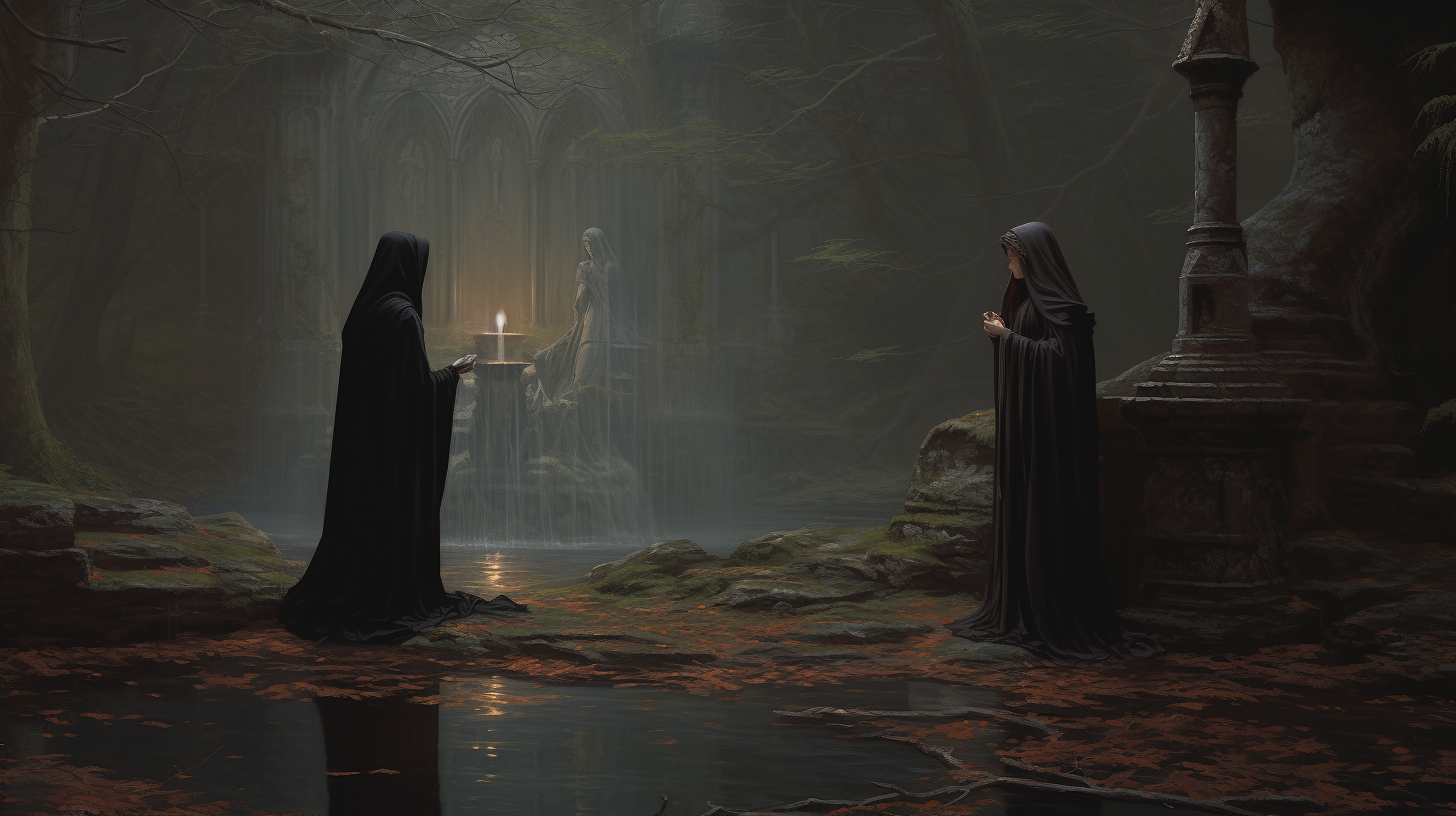Introduction:
The realm of occultism has long been a source of fascination and mystery, encompassing a vast array of practices, beliefs, and rituals. Within this intricate tapestry lies the enigmatic realm of black magick spells, a controversial and often misunderstood aspect of occult history. In this article, we embark on a journey through time to explore the origins, practices, and historical significance of black magick spells within the occult.

Origins and Ancient Beliefs:
The roots of black magick spells can be traced back to ancient civilizations, where rituals and practices associated with dark arts and forbidden knowledge were prevalent. In cultures such as Ancient Egypt, Mesopotamia, and Greece, the study of magic was deeply intertwined with religious and spiritual beliefs. Spells involving curses, hexes, and rituals aimed at invoking malevolent forces were often employed as a means of protection, revenge, or gaining power.
Medieval Witchcraft and the Grimoire Tradition:
During the Middle Ages, witchcraft became a prominent focus of fear and persecution. The practice of black magick spells was often associated with witchcraft and devil worship, leading to widespread paranoia and witch trials. Grimoires, or books of magic, gained popularity during this period, providing practitioners with instructions for performing various spells, including those of a darker nature. Texts like “The Lesser Key of Solomon” and “The Book of Abramelin” delved into the summoning of demons and the manipulation of supernatural forces.
Hermeticism, the Occult Revival, and Aleister Crowley:
In the 19th and early 20th centuries, a resurgence of occultism took place known as the occult revival. During this period, figures such as Eliphas Levi and Helena Blavatsky explored esoteric teachings, incorporating elements of black magick within their practices. However, it was the infamous Aleister Crowley who made a lasting impact on the occult community. Crowley, a British occultist, writer, and ceremonial magician, embraced black magick as a transformative and liberating force. His book “The Book of the Law” introduced the concept of Thelema, a spiritual philosophy incorporating ritual magick and self-discovery.

Modern Interpretations and Contemporary Occult Practices:
In contemporary occultism, black magick spells continue to be a subject of fascination and controversy. The interpretation and practice of black magick vary widely among occultists, with some viewing it as a path to personal empowerment and self-transformation, while others condemn it as dangerous or unethical. Practices influenced by ceremonial magick, chaos magick, and left-hand path traditions incorporate elements of black magick within their rituals, focusing on personal will and the exploration of taboo and forbidden knowledge.
Ethics, Responsibility, and Personal Choice:
The practice of black magick spells raises important ethical considerations. The manipulation of energies and forces for personal gain or harm can have unintended consequences and negative karmic repercussions. Many occultists emphasize the importance of personal responsibility and the understanding that one’s actions, including the use of black magick, have far-reaching effects. The moral compass of each practitioner determines their approach to this controversial aspect of the occult.
Conclusion:
Black magick spells have left an indelible mark on the history of the occult, inspiring awe, fear, and intrigue. Rooted in ancient beliefs and rituals, these practices have evolved over time, adapting to the changing cultural and spiritual landscapes. Regardless of personal beliefs and interpretations, the exploration of black magick spells within the occult provides insight into the multifaceted nature of human spirituality and the eternal quest for power, knowledge, and self-discovery. I can cast black magick spells for you.
. . .

